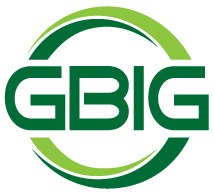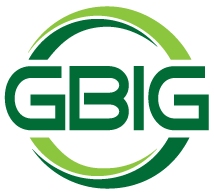GBIG News
Get links to the latest news, events, stories, and interviews from our 5P news members. Our goal is to remind the decision-makers in Wisconsin of the importance of our industry both historically, and more importantly, into the future.
Read the latest 86 Stories and Links on the Internet below.

Featured Stories
- Purdue Hemp Absorbency Breakthrough Offers New Pathway for Wisconsin Paper
- Speakers look at the State of forest, pulp and paper industries. We need to rebuild it according to Ochs!
- State of Michigan cancels $29.4 million for Billerud
- Fox Cities Chamber earns national chamber of the year award
- UW Madison one step closer to harnessing the power of sun through fusion research
- Wisconsin holds the lead in electrification.
- WEDC Announces Record Planned Investments in Wisconsin Industries by Evers
- Massive plastics Recycling project draws Federal backing
- Wisconsin’s Apostle Islands could become America’s newest national park
- USA based Clearwater sells tissue manufacturing to Italian based Sofidel
- RRD finalizes acquisition of digital print marketing businesses from Vericast
- Microsoft collaborates with UW Madison and Mass General Bringham to further advance ai models for medical imaging
- Placon closing Wilson factory laying off 70 people. Placon headquarters are in Madison, WI
- Domtar Nekoosa mill receives the community award for business
- Microsoft buys more land in Mount Pleasant near data center
- Goodman lumber mill closes down leaving 48 employees out of jobs after the purchase by a Private Equity company
- Clearwater sell tissue business to Sofidel
Label
- Print label market strategies successes
- Sustainability legislation drives packaging innovation for recycling
- RRD Expands label capacity to enhance efficiency and support in eCommerce
- Trends in Printing with growth in Wide Format, Packaging and Labels leading the way. Wisconsin has a heavy concentration of label companies
Paper
- Chasing fiber for recycling
- Importance of paper in learning and literacy
- 3D houses built from pulp in Maine
- PG reinvents Iconic Brand Charmin with simple perforation line
- The continuous input of fiber of virgin fiber is critical. Recycled fiber is limited in the number of times being used
- Paper Bag Coated Treated Paper Manufacturing with a BIG growth potential
- Toilet paper environmentally impactful but alternatives are rolling out
- PG focused on hiring veterans as former army officer heads up recruitment
- Paper plays a critical role in the Digital Era
- Ahlstrom Paw Print pet food packaging wins award
- Insights on major grades of the pulp and paper industry
- Canton, Ohio continues to redefine itself after paper mill closure with loss of jobs in a small city
- Everything you need to know about FSC Certification
- Food contact paper markets forecasts 2023 – 2028 sees increased demand for glassine paper
- Sustainability in pulp and paper with latest industry innovations
Wisconsin
- Limburger cheese made in Wisconsin
- Evers and WEDC announce $100 million investment in Wisconsin startups
- American Packaging wins two 2024 FLA excellence in flexography awards
- Colbert Packaging orders new sheetfed press perfecto press with UV coating
- Corrugated Consolidation with Green Bay Packaging a key player
Members
- ECO3 solutions magazine for printers
- K & L is now officially Paper Dimensions under the leadership of Peter Emenecker
- Robinson: US built bess storage units help suppliers meet demand
- Arc celebrates entrance into Wisconsin and awards
- BW Converting launches its mission led rebranding
- Appvion: Direct Thermal printing – Which is better for packaging and logistics labels?
- Hurkman your one stop shop for complete industrial mechanical systems
- Karma Group Nature’s Way creative strategy
- Anderson-Vreeland appoints Shelly Swanke to Director of Digital Solutions and Equipment
- Erhardt-Leimer global offers solutions for different industries
- Retroflex Innovation solutions for flexo printers
- Rocket Industrial warehouse safety tips ensuring a secure working environment
- Scott Bushkie – Cornerstone: Pro’s and Con’s of recapitalization
- IMS Technologies expands calculate production site
- JP Morgan/Chase: Meet Private Credit
- Alex Parra Joins Wikoff Color as Plant Manager for Milwaukee Plant
- Massman companies celebrate Grand opening. Massman focuses on packaging with plants in Wisconsin
















